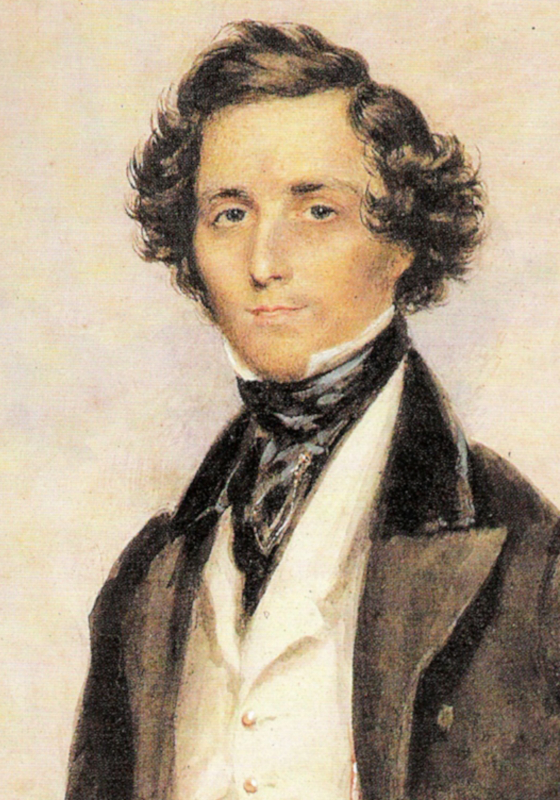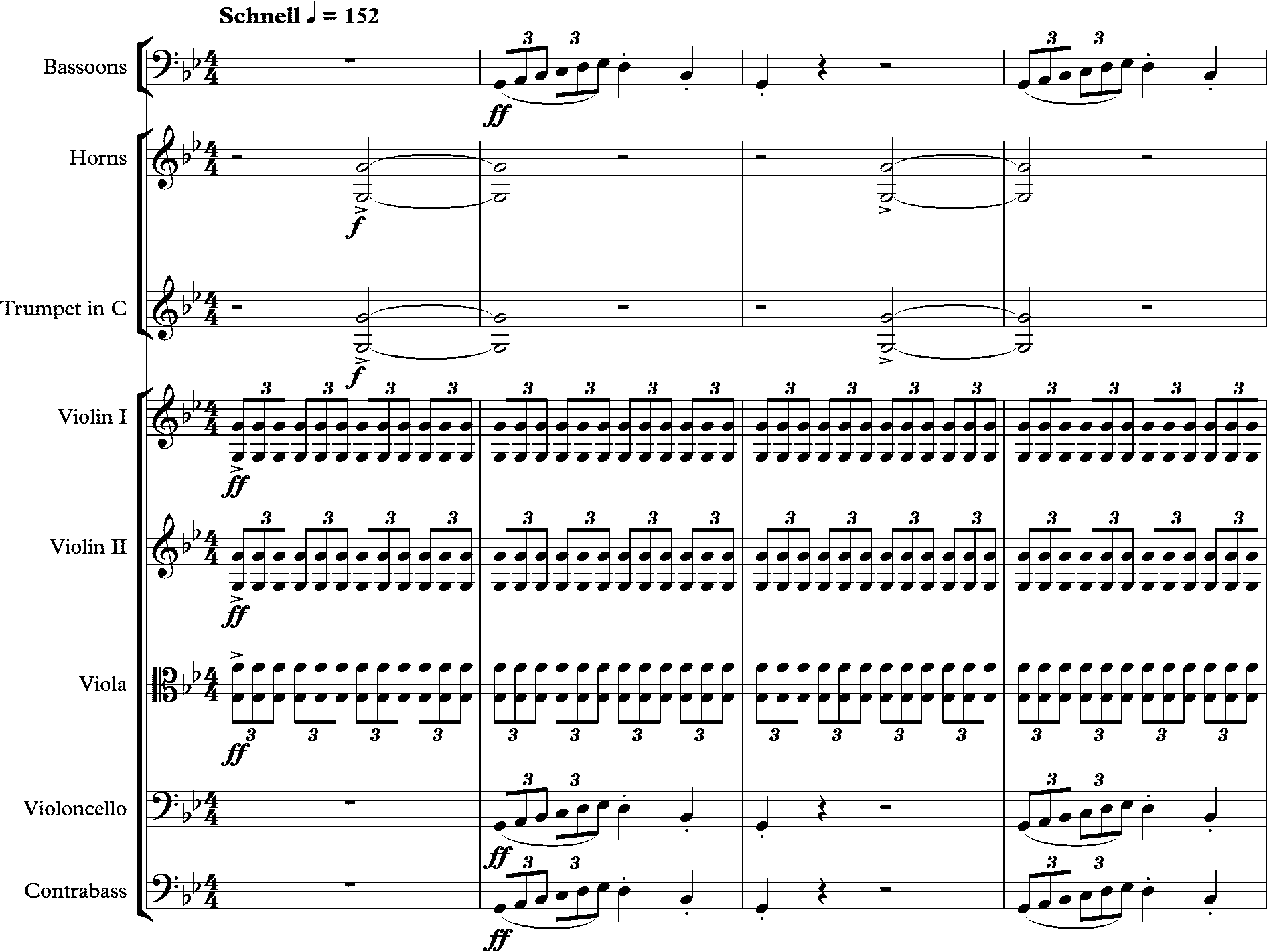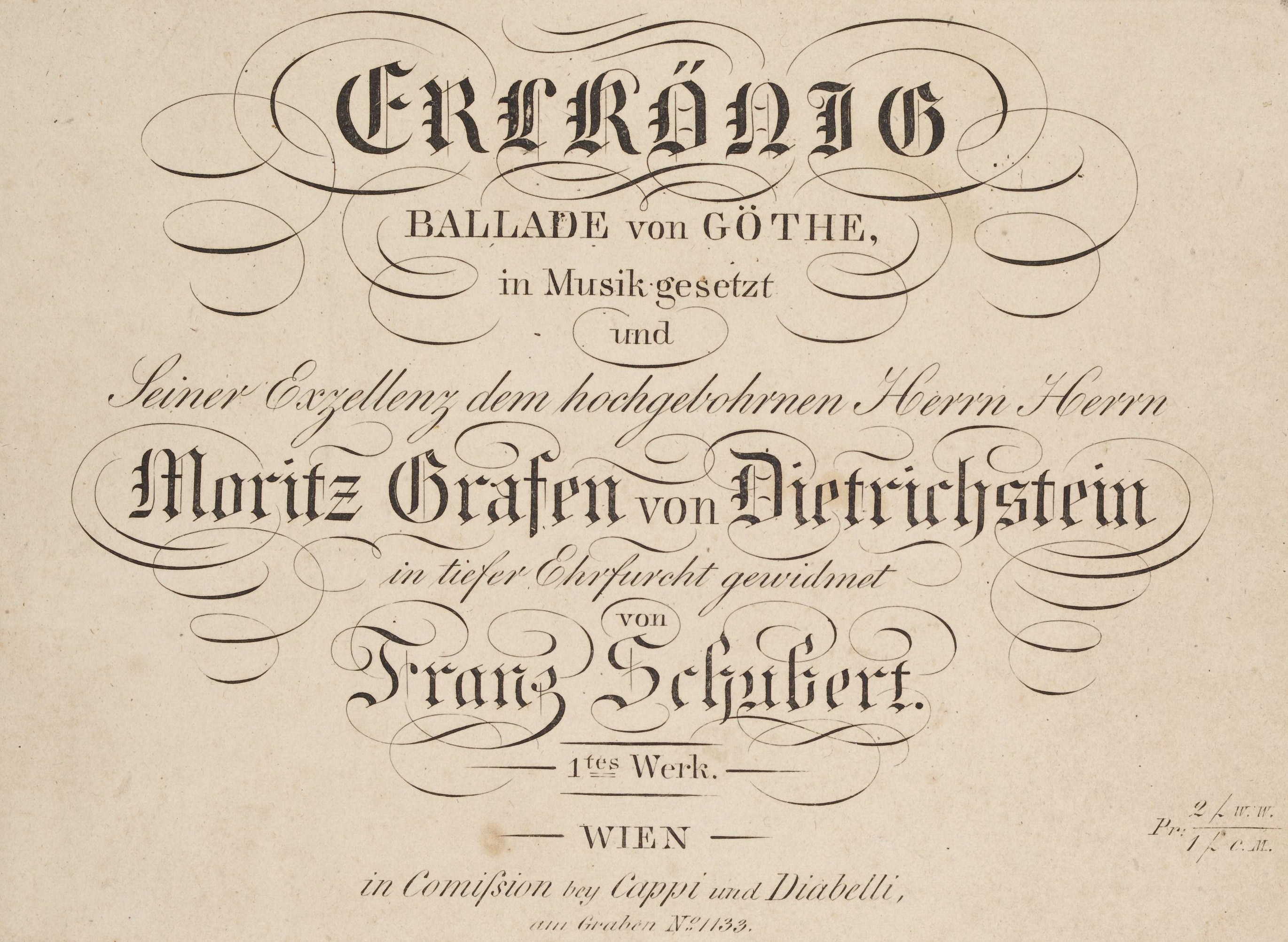|
Carl Loewe
Johann Carl Gottfried Loewe (; 30 November 1796 – 20 April 1869), usually called Carl Loewe (sometimes seen as Karl Loewe), was a German composer, tenor singer and conductor. In his lifetime, his songs ("Balladen") were well enough known for some to call him the "Schubert of North Germany", and Hugo Wolf came to admire his work. He is less known today, but his ballads and songs, which number over 400, are occasionally performed. Life and career Loewe was born in Löbejün in the Prussian Duchy of Magdeburg and received his first music lessons from his father. He was a choir-boy, first at Köthen, and later at Halle, where he went to grammar school. The beauty of Loewe's voice brought him under the notice of Madame de Staël, who procured him a pension from Jérôme Bonaparte, then king of Westphalia, which enabled him to further his education in music, and to study theology at Halle University. In 1810, he began lessons in Halle with Daniel Gottlob Türk. This end ... [...More Info...] [...Related Items...] OR: [Wikipedia] [Google] [Baidu] |
Löbejün
Löbejün () is a former town in the Saalekreis in Saxony-Anhalt, Germany. Since 1 January 2011, it is part of the town Wettin-Löbejün. Geography Geographic location Löbejün is located north of Halle (Saale). The town is located in a hilly area in which a tributary to the Saale River, the Fuhne, flows. Geology The town is known for its ''Löbejüner porphyry''. In the northeastern part of the town coal beds are found. City classification The following towns are classified as part of Löbejün: *Gottgau *Schlettau History Löbejün was first recognized in 961 as ''Liubichun''. Population development ² Source: Statistisches Landesamt Sachsen-Anhalt Industrial development Since 1518 (when the quarry was first mentioned) porphyry was processed. In circa 1622 the coal mine was founded. The coal mine reached peak production in the 18th century, when it had 27 mine shafts. It closed in 1884. Politics Löbejün was part of the ''Verwaltungsgemeinschaft'' Saalkreis Nord ... [...More Info...] [...Related Items...] OR: [Wikipedia] [Google] [Baidu] |
Daniel Gottlob Türk
Daniel Gottlob Türk (10 August 1750 – 26 August 1813) was a German composer, organist, and music professor of the Classical period. Biography Born in Claußnitz, Saxony, Türk studied organ under his father and later under Johann Adam Hiller. It was Hiller who recommended Türk for his first professional position at Halle University, in Halle, Germany. On 18 April 1779 Halle University granted Türk's request to begin lecturing on music theory, making him the University's "Director of Music." This appointment made Türk the second university music director in Germany. While at Halle, Türk published his treatise ''On the Role of the Organist in Worship'' which is still occasionally reprinted. Several of Türk's dances and minuets for the piano are still popular today. He wrote 18 sonatas. His most notable contribution to the classical music canon is the ''Klavierschule,'' a teaching method for the keyboard. He also wrote a cantata, ''Die Hirten bey der Krippe zu Bethle ... [...More Info...] [...Related Items...] OR: [Wikipedia] [Google] [Baidu] |
Concerto For Two Pianos And Orchestra In A-flat Major (Mendelssohn)
The Concerto for Two Pianos and Orchestra in A major was written by Felix Mendelssohn when he was 15 years old, and is dated 12 November 1824. Written for two pianos and a full orchestra, the work received its first public performance in Berlin, in 1825. The composer and his mentor Ignaz Moscheles, who inspired its composition, were the soloists. He performed it again on 20 February 1827 at Stettin, where the cathedral organist, composer, baritone singer and conductor Carl Loewe organised concerts. Loewe and Mendelssohn were the two piano soloists on that occasion.In 1829, the composer made his London debut with it, again with Moscheles as the second pianistPortland Chamber Orchestra This concerto and its predecessor, the E major concerto, may have been the first works composed for full orchestra by Mendelssohn. It may have been inspired by the occasion when Mendelssohn met Ignaz Moscheles in Berlin in 1824, when Moscheles accepted an invitation to visit Abraham Mendelssohn Bar ... [...More Info...] [...Related Items...] OR: [Wikipedia] [Google] [Baidu] |
A Midsummer Night's Dream (Mendelssohn)
On two occasions, Felix Mendelssohn composed music for William Shakespeare's play ''A Midsummer Night's Dream'' (in German ''Ein Sommernachtstraum''). First in 1826, near the start of his career, he wrote a concert overture ( Op. 21). Later, in 1842, five years before his death, he wrote incidental music (Op. 61) for a production of the play, into which he incorporated the existing overture. The incidental music includes the famous " Wedding March". Overture The overture in E major, Op. 21, was written by Mendelssohn at 17 years and 6 months old (it was finished on 6 August 1826).'' Grove's Dictionary of Music and Musicians'', 5th ed., 1954 The near-contemporary music scholar George Grove called it "the greatest marvel of early maturity that the world has ever seen in music". It was written as a concert overture, not associated with any performance of the play. The overture was written after Mendelssohn had read a German translation of the play in 1826. The translation was by ... [...More Info...] [...Related Items...] OR: [Wikipedia] [Google] [Baidu] |
Felix Mendelssohn
Jakob Ludwig Felix Mendelssohn Bartholdy (3 February 18094 November 1847), widely known as Felix Mendelssohn, was a German composer, pianist, organist and conductor of the early Romantic music, Romantic period. Mendelssohn's compositions include symphony, symphonies, concertos, piano music, organ music and chamber music. His best-known works include the Overture#Concert overture, overture and incidental music for ''A Midsummer Night's Dream (Mendelssohn), A Midsummer Night's Dream'' (which includes his "Wedding March (Mendelssohn), Wedding March"), the ''Symphony No. 4 (Mendelssohn), Italian'' and ''Symphony No. 3 (Mendelssohn), Scottish'' Symphonies, the oratorios ''St. Paul (oratorio), St. Paul'' and ''Elijah (oratorio), Elijah'', the ''The Hebrides (overture), Hebrides'' Overture, the mature Violin Concerto (Mendelssohn), Violin Concerto, the Octet (Mendelssohn), String Octet, and the melody used in the Christmas carol "Hark! The Herald Angels Sing". Mendelssohn's ''Songs W ... [...More Info...] [...Related Items...] OR: [Wikipedia] [Google] [Baidu] |
Oratorio
An oratorio () is a musical composition with dramatic or narrative text for choir, soloists and orchestra or other ensemble. Similar to opera, an oratorio includes the use of a choir, soloists, an instrumental ensemble, various distinguishable characters (e.g. soloists), and arias. However, opera is musical theatre, and typically involves significant theatrical spectacle, including sets, props, and costuming, as well as staged interactions between characters. In oratorio, there is generally minimal staging, with the chorus often assuming a more central dramatic role, and the work is typically presented as a concert piece – though oratorios are sometimes staged as operas, and operas are not infrequently presented in concert form. A particularly important difference between opera and oratorio is in the typical subject matter of the text. An opera libretto may deal with any conceivable dramatic subject (e.g. history, mythology, Richard Nixon, Anna Nicole Smith an ... [...More Info...] [...Related Items...] OR: [Wikipedia] [Google] [Baidu] |
Lord Byron
George Gordon Byron, 6th Baron Byron (22 January 1788 – 19 April 1824) was an English poet. He is one of the major figures of the Romantic movement, and is regarded as being among the greatest poets of the United Kingdom. Among his best-known works are the lengthy narratives ''Don Juan (poem), Don Juan'' and ''Childe Harold's Pilgrimage''; many of his shorter lyrics in ''Hebrew Melodies'' also became popular. Byron was educated at Trinity College, Cambridge, before he travelled extensively in Europe. He lived for seven years in Italy, in Venice, Ravenna, Pisa and Genoa after he was forced to flee England due to threats of lynching. During his stay in Italy, he would frequently visit his friend and fellow poet Percy Bysshe Shelley. Later in life, Byron joined the Greek War of Independence to fight the Ottoman Empire, for which Greeks revere him as a folk hero. He died leading a campaign in 1824, at the age of 36, from a fever contracted after the First Siege of Missolonghi, f ... [...More Info...] [...Related Items...] OR: [Wikipedia] [Google] [Baidu] |
William Shakespeare
William Shakespeare ( 23 April 1564 – 23 April 1616) was an English playwright, poet and actor. He is widely regarded as the greatest writer in the English language and the world's pre-eminent dramatist. He is often called England's national poet and the "Bard of River Avon, Warwickshire, Avon" or simply "the Bard". His extant works, including William Shakespeare's collaborations, collaborations, consist of some Shakespeare's plays, 39 plays, Shakespeare's sonnets, 154 sonnets, three long narrative poems and a few other verses, some of uncertain authorship. His plays List of translations of works by William Shakespeare, have been translated into every major modern language, living language and are performed more often than those of any other playwright. Shakespeare remains arguably the most influential writer in the English language, and his works continue to be studied and reinterpreted. Shakespeare was born and raised in Stratford-upon-Avon, Warwickshire. At the age of 18 ... [...More Info...] [...Related Items...] OR: [Wikipedia] [Google] [Baidu] |
Friedrich Rückert
Johann Michael Friedrich Rückert (16 May 1788 – 31 January 1866) was a German poet, translation, translator, and professor of Oriental languages. Biography Johann Michael Friedrich Rückert was born 16 May 1788 in Schweinfurt and was the eldest son of a lawyer, Johann Adam Rückert, and his wife, Maria Barbara ( Schwappach). He was educated at the local ''gymnasium (school), Gymnasium'' and at the universities of University of Würzburg, Würzburg and University of Heidelberg, Heidelberg. From 1816 to 1817, he worked on the editorial staff of the ''Morgenblatt'' at Stuttgart. Nearly the whole of the year 1818 he spent in Rome, and afterwards he lived for several years at Coburg (1820–1826), where he married Luise Wiethaus-Fischer in 1821. He was appointed a professor of Oriental languages at the University of Erlangen in 1826, and, in 1841, he was called to a similar position in Berlin, where he was also made a privy councillor. In 1849 he resigned his professorship at Be ... [...More Info...] [...Related Items...] OR: [Wikipedia] [Google] [Baidu] |
Erlkönig (Schubert)
"Erlkönig", Opus number, Op. 1, 328, is a ''Lied'' composed by Franz Schubert in 1815 in music, 1815, which sets Johann Wolfgang von Goethe's poem Erlkönig, of the same name. The singer takes the role of four characters — the narrator, a father, his small son, and the titular "Erlking", a supernatural creature who pursues the boy — each of whom exhibit different tessitura, harmony, harmonic and rhythmic characteristics. A technically challenging piece for both performers and accompanists, "Erlkönig" has been popular and acclaimed since its premiere in 1821, and has been described as one of the "commanding compositions of the century". Among Schubert's most famous works, the piece has been arranged by various composers, such as Franz Liszt (solo piano) and Heinrich Wilhelm Ernst (solo violin); Hector Berlioz, Franz Liszt, and Max Reger have orchestrated the piece. History Goethe's poem was set in music by at least a hundred composers, including Johann Friedrich Reich ... [...More Info...] [...Related Items...] OR: [Wikipedia] [Google] [Baidu] |
Erlkönig
"Erlkönig" is a German poetry, poem by Johann Wolfgang von Goethe. It depicts the death of a child assailed by a supernatural being, the Erlking, a king of the fairy, fairies. It was originally written by Goethe as part of a 1782 ''Singspiel'', . "Erlkönig" has been called Goethe's "most famous ballad". The poem has been set to music by several composers, most notably Erlkönig (Schubert), by Franz Schubert. Summary An anxious young boy is being carried at night by his father on horseback. To where is not spelled out; German ''Wikt:Hof, Hof'' has a rather broad meaning of "yard", "courtyard", "farm", or "(royal) court". The opening line tells that the time is late and that it is windy. As the poem unfolds, the son claims to see and hear the "Erlkönig" (Erl-King). His father claims to not see or hear the creature, and he attempts to comfort his son, asserting natural explanations for what the child sees – a wisp of fog, rustling leaves, shimmering willows. The Erl-King ... [...More Info...] [...Related Items...] OR: [Wikipedia] [Google] [Baidu] |
Johann Wolfgang Von Goethe
Johann Wolfgang (von) Goethe (28 August 1749 – 22 March 1832) was a German polymath who is widely regarded as the most influential writer in the German language. His work has had a wide-ranging influence on Western literature, literary, Political philosophy#European Enlightenment, political, and Western philosophy, philosophical thought in the Western world from the late 18th century to the present.. A poet, playwright, novelist, scientist, statesman, theatre-director, and critic, Johann Wolfgang von Goethe bibliography, his works include plays, poetry and aesthetic criticism, as well as treatises on botany, anatomy, and colour. Goethe took up residence in Weimar in 1775 following the success of his first novel, ''The Sorrows of Young Werther'' (1774), and joined a thriving intellectual and cultural environment under the patronage of Duchess Anna Amalia of Brunswick-Wolfenbüttel, Duchess Anna Amalia that formed the basis of Weimar Classicism. He was ennobled by Karl August, G ... [...More Info...] [...Related Items...] OR: [Wikipedia] [Google] [Baidu] |






